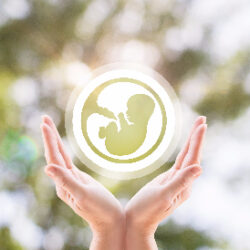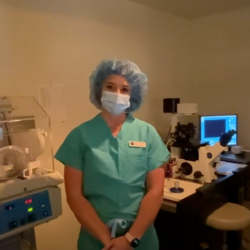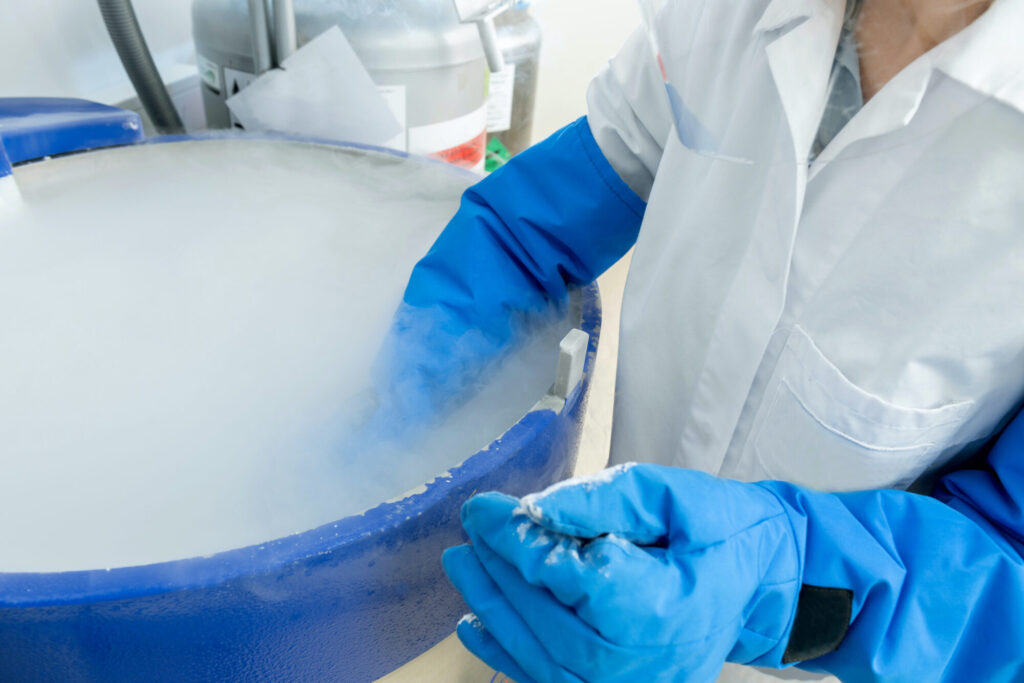
One of the most common questions asked at The Fertility Institute is, “how long does egg freezing take?” Although every woman’s timeline will be different depending on fertility and health issues, the process of freezing your eggs to preserve your future fertility usually takes two to three weeks to complete. The following will give you an idea of what steps are involved in the process and what you can expect:
- Initial consultation: During your first visit, one of our fertility specialists will evaluate your medical history, walk you through the process, and answer any questions you may have about the procedure.
- Testing: On the third day of your menstrual cycle, we will utilize a transvaginal ultrasound and lab tests to predict how many eggs might be retrieved during the cycle and how many cycles should be planned. Based on the findings, your doctor will create an ovarian stimulation protocol designed to maximize egg production.
After completing ovarian reserve testing, our team at The Fertility Institute will work with you to determine your individual timeline. From birth control to the actual freezing of the eggs, there are 5 steps to the procedure:
- Birth control pills: Before beginning the ovarian stimulation medications, you will take birth control pills for 2-3 weeks. This will help us have more control over the timing of your egg freezing cycle, help your ovaries respond better to fertility drugs and minimize the growth of cysts.
- Ovarian Stimulation and Monitoring: Upon the start of your menstrual cycle, you will start with daily injectable medications of the natural hormones FSH and LH to stimulate the growth and development of more eggs. During the next 9–12 days of the egg freezing timeline, you will be prescribed injection medications that will prompt your body to produce multiple eggs, instead of the single egg it usually produces each cycle. Your progress will be monitored with 5–7 short office visits so that our fertility specialists can ensure that your eggs are responding to the fertility drugs.
You will be able to live and work normally during your egg freezing cycle. Office visits for monitoring your progress can be scheduled in the early morning, before work, or at another time that is convenient to your schedule. The Fertility Institute will work with you to find a time that’s optimal for you to take your daily medication. During this portion of the egg freezing timeline, you should limit vigorous exercise, alcohol, caffeine, and have protected sex.
Trigger shot: At the end of the stimulation period, you will need to administer one final injection “the trigger shot” at exactly the right time. The trigger shot is scheduled 35 hours before your scheduled egg retrieval.
Egg retrieval: Typically, two days following the trigger injection, you will return to The Fertility Institute so that one of our specialists can retrieve your mature eggs. This 20-minute intra-vaginal procedure is pain-free and will take place while you are under sedation. Because you will be under anesthesia, it is required that you have someone drive you home. This is the only point during the egg freezing timeline at which we recommend that you take a day off from work.
Egg freezing: Once retrieved, our embryologists will evaluate the eggs to determine which ones are mature and will freeze only the mature eggs. Eggs are frozen using vitrification, an ultra-rapid cooling process, and are then stored in liquid nitrogen for long-term storage.
Not every egg will result in a pregnancy when couples try to conceive on their own, and the same truth applies when you freeze your eggs. Most women must complete two egg freezing cycles to reach the recommended number of eggs. For women 37 or younger who have excellent ovarian reserve function, the goal is to freeze between 15 to 20 mature eggs. For those who have diminished ovarian function or are aged over 38 years, we recommend freezing 25 to 30 eggs.
If you are interested in preserving your eggs for the future, call us at The Fertility Institute today to schedule a consultation with one of our fertility specialists.



